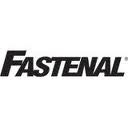It’s not chips and soda that maintenance, repair, and overhaul (MRO) shops such as Fastenal Company (NASDAQ:FAST) and W.W. Grainger, Inc. (NYSE:GWW) are stocking vending machines with, but rather nuts, bolts, work gloves, and WD-40. Although the functionality of an industrial vending machine is similar to consumer versions — controlling access to the goodies locked inside — they’re becoming big business and could come to redefine the maintenance, repair, and operations industry.
Fast forward
Fastenal has led the way forward in the space. It began installing vending machines three years ago and today has more than 21,000 installed, a base of sales that helps offset an otherwise slowing business environment. In the fourth quarter, daily sales growth to vending customers was 28.6%, down from almost 34% in the first, but overall sales were off 12% between the two periods, so the vending business continues to grow inside the company and remains an important driver for it.

A coin-drop business
Industrial vending has a lot of benefits to MRO distributor customers. It provides control over inventory they didn’t previously have, so instead of having employees merely pull a new pair of gloves from stock every week, access to them is controlled and recorded so that management knows who is using what, when, and in what amount. When inventory isn’t under lock and key, it’s easy for employees to simply take a new part or item instead of being accountable for what’s already in circulation.
MSC, Grainger, and Fastenal all hope the cost savings of the controlled-access inventory management system will make them “sticky” with their customers. Although the upfront costs are substantial, total cost of ownership ought to outweigh the initial outlay, and having to restock those machines has the MROs hoping the customers return to them again and again.
The MRO market is highly fragmented, with many very small players. Grainger is the industry’s biggest, with about a 6% share of the market while the top 50 MRO shops control less than 30% of the market. A vending program like the big three are rolling out serves to distinguish them from the competition and could help keep Amazon.com, Inc. (NASDAQ:AMZN) at bay. The e-commerce leader has made a big push into the industrial supply business and could represent a tough competitor down the road. By making themselves indispensable to their customers with an inventory dispensing system, the MROs can blunt whatever edge the e-tailer brings to the game.
As beneficial as these systems are to both parties, however, the MROs are seeing a decline in orders because there is better control on the customers’ end. Not as much is wasted, so stock doesn’t have to be replenished as often. But profits are also being hurt because these are lower-margin products. MSC reported gross margins of 45.9% last quarter but said the vending program ate about 50 basis points from it, and Fastenal has dedicated personnel to work on shoring up margins in its program.





